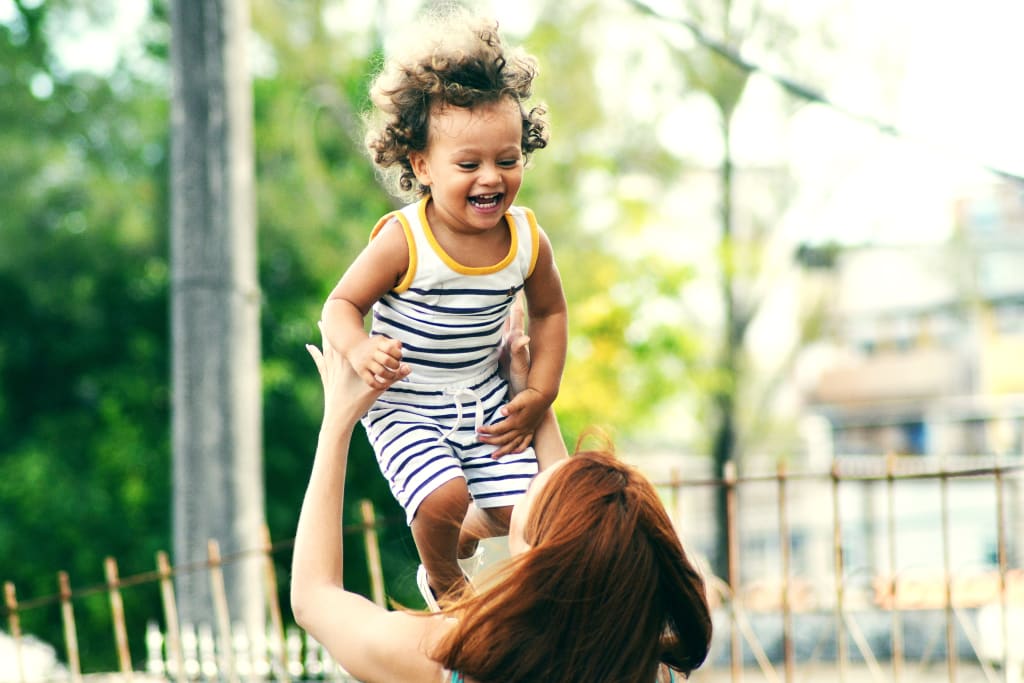What is more important, spending time with your children or earning money?
Everyone has their own unique opinion on whether it is better to spend time with children or earn money.

A video of a full-time mother who graduated with a master's degree and was disliked by her child has sparked a hot debate online. Every day, she works hard to take care of her family and her children, but in the end, her mother's efforts were wiped out by her children's words.
The child said, "What did you do? Didn't you just cook a meal at home and do the housework?" A graduate with a master's degree, she gave up a high-paying job for her family, working year-round, and ended up in this situation.
Everyone has their own unique opinion on whether it is better to spend time with children or earn money.
Some people believe that even if you are a mother, you should not lose yourself, nor do you want your life to revolve only around your children and family, you should have a career of your own, enrich yourself, improve yourself and not let your life be filled with regrets. For ordinary people, it is necessary to solve the food and clothing first before ascending to the next generation's future when the economy is assured.
Some people believe that it is most important to spend time with children. 0 to 6 years old is the golden stage of a child's growth, and this period requires parents to be around to give their children the right guidance. Harvard psychology professor Gilbert said: Ten years from now, you won't regret doing one less project, but you will regret not spending one more hour with your child.
A boy in Teen Talk breezed out the endless heartache behind it: "My parents are a pair of parents who only have children but don't spend time with them, for me and my 5-year-old brother. I was left at my aunt's house by them after primary school, and my aunt's brother often bullied me. But before I could answer the phone, mum and dad were busy again.
Gradually, I stopped thinking about my mum and dad when I was bullied, and I always told myself that it didn't matter if my mum and dad were not around because I had grown up too.
Until I found out that my brother was weak, had injuries, and was afraid of strangers. Every time I saw my brother like this, it was like seeing myself as a child, I wanted him to have a good childhood, Dad, promise me you'll take my brother away this time". And the father was sobbing below, talking about his hardship, that without money there is no way to train his child to study, and saying sorry to him.
And now many parents, under the guise of spending time with their children, do nothing all day long, deceiving themselves and others, either gathering some poker friends, making a mess of the house and putting their children in a bad environment, or keeping their mobile phones at home, locking their children in the house to play with toys, and when the child wants you to stay with her, you are too annoyed, "Go, play with your digger".
You even beat up your child, causing a shadow of childhood. There is a particularly good saying on the internet, "Some people spend their childhood healing for life, while others spend their life healing for childhood", which shows how important childhood is to a person's life.
Since you have chosen your child, you have to be responsible for your c. The so-called responsibility is not just to ensure that your child does not have safety problems, but to be an effective companion in life and mind

1、Put down your mobile phone and participate in your child's games
The so-called accompanying children, not you play your, children play children's, and not to buy a bunch of toys for children to play by themselves. It's more about being involved with your child and letting you be a part of your child's game.
For example, when your child is playing with a small car, you take a piece of the puzzle and put it on top, and say: "Transport it to its box". If it falls off in the middle, we can exaggerate and amuse the child with a tone of voice and body movements, such as "Ah! It's overturned", o"It's going to hit it's going to hit it's going to hit it". You can also use blocks to put together a castle, parents can take a block to the child from time to time, or put a block on the child's castle, a back and forth, you and the child will have a lot of fun playing with each other. he d e aggeratenndr
2. Listen more to your child's ideas and talk more
Some studies have shown that a child is more involved and motivated in the activities he chooses than if the parents make the decisions. The more involved the child is, the more motivated he or she is and the more he or she can learn in the process. This also gives the child a good opportunity to practice and see how he or she communicates with others.
3. Create opportunities to spend time alone with your child
Create a play space in your home for you and your child. It doesn't need to be large enough for your child to be close to you and to avoid visual distractions from one thing or another.
For example, a small spare room in which you can set up a picture book area or toy area for your child. If there is no spare room in the house, then divide up a smaller private space on the balcony or living room with a block, or furniture, or set up a tent on the balcony. In these divided spaces, do meaningful things with your child, such as drawing, reading picture books, and listening to music ......
4. Do more parent-child reading together
Parent-child reading is a bridge between parents and children and can improve children's independent reading skills and can learn how to communicate with others. 2-6 years old is a critical period for developing children's reading, a period when children begin to explode into language. How do you do parent-child reading? When reading, parents should use exaggerated tone and facial expressions to tell the story for the child, for example, who cried, if parents use a crying tone and expressions to tell "look, it cried", then the child will also e with the performance of crying. empathize
5. Correct guidance to avoid b b behavior
Parents' words and actions, whether wrong or right, can have a very deep impression on the child. For example, when a child hits a peer, the parent pulls the child's hitting hand out and hits it, and tells him that he is not allowed to hit. Such b is contradictory; you tell the child that he cannot hit while you are hitting him, and the child will think, "Why is it okay for mum to hit and I am not allowed to hit?" It can create a misconception in the child about the act of hitting. behavior
In today's society, it is difficult to walk around with money and not walk around without it. E parent knows that companionship as a child enhances a child's sense of security, builds his or her self-confidence, and nurtures, the child as a person, but many times there is no choice and one must leave home to earn money and support a large family. very
About the Creator
Grilli Fromong
All for one, one for all.






Comments
There are no comments for this story
Be the first to respond and start the conversation.